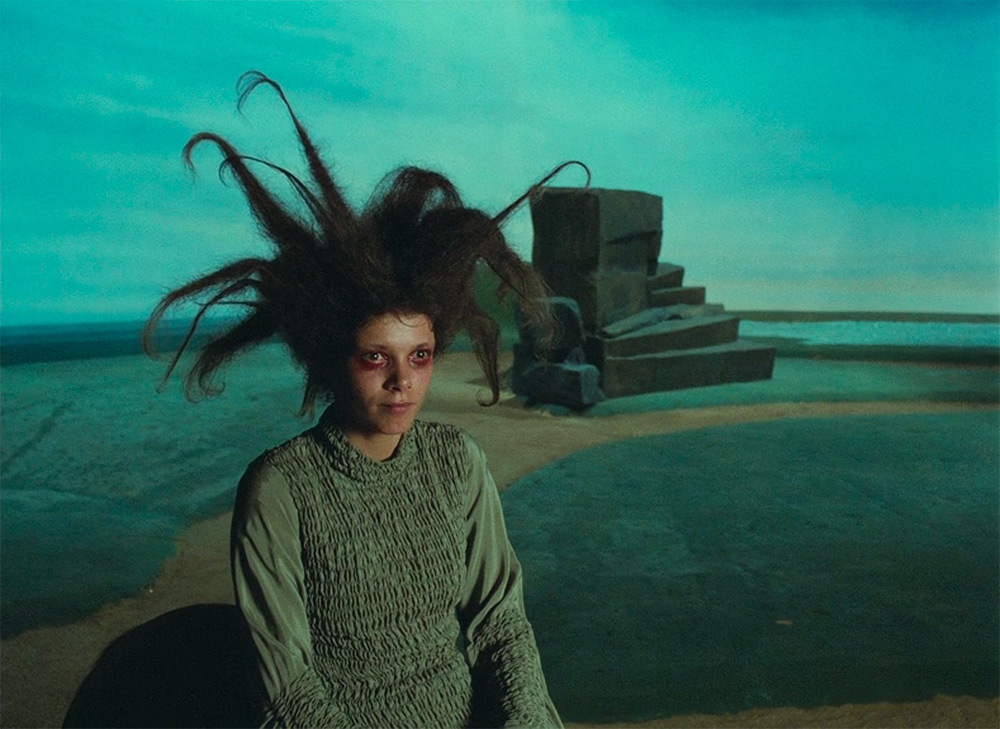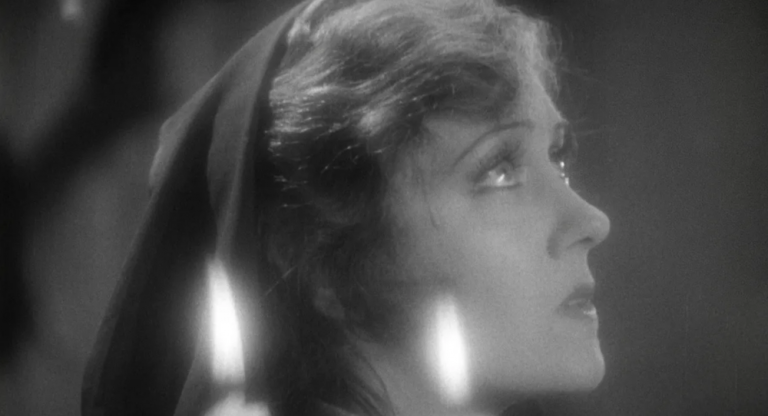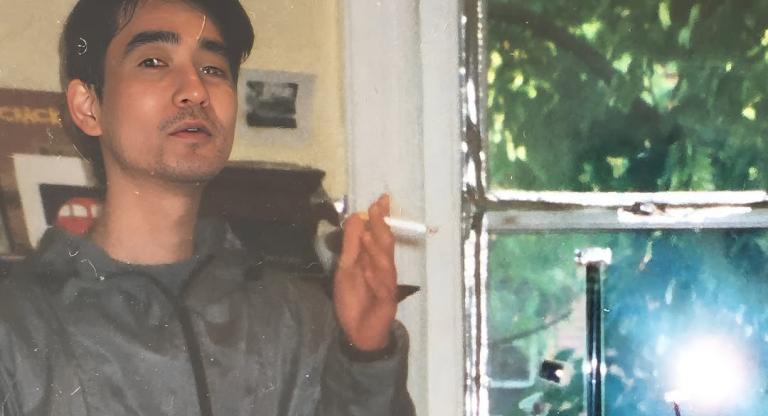Éric Rohmer’s adaptation of Chrétien de Troyes’s 12th Century epic poem “Perceval, the Story of the Grail” is one of the more anomalous projects in a career full of realist dramas dedicated to the everyday problems of everyday people. The film, with its lavish theatrical sets and painted backdrops, also represents a strange outing for cinematographer Néstor Almendros, whose craftsmanship is so often spoken about in relation to his mastery of natural light during on-location shoots. As he wrote in his memoir, A Man With A Camera, the shoot for this film was “the most arduous in my professional life…. I must confess that for the first two weeks of shooting I felt disoriented.” For Rohmer, as for Almendros, and I imagine numerous other collaborators, Perceval le Gallois (1978) represented a departure from habit. Per its lead actor, Fabrice Luchini, it “was a scholarly project, touched by insanity.”
A more-or-less faithful adaptation of Chrétien de Troyes’s romance that acknowledges the incomplete nature of said narrative by drifting into other epics, the tale of Sir Gawain and also that of Christ’s Crucifixion, Rohmer’s Perceval is one of his most ambitious films. And though anomalous and ambitious, Rohmer’s graceful direction keeps all of its moving pieces in place, lending Perceval the apt and unique quality of a storybook in motion. His choice to keep everything in focus magnifies this effect, invoking the confused perspective of Medieval paintings to produce a film that seems pulled from another time and place. Adding to the verisimilitude of a bygone era is the perfect casting of Luchini, whose flamingo-like features convey a preternatural boyishness that befits the blonde babe at the center of Chrétien de Troyes’s story. In fact, the whole production team warrants praise for being able to transform the familiar faces of Rohmer’s recurrent troupe—Pascale Ogier, Marie Rivière, Arielle Dombasle, and company—into veritable Medieval players.
The magic of Rohmer’s Perceval is that in discarding his usual realism, he finds a new one. His commitment to the look, music, and tempo of another time is what enlivens his adaptation. Luchini was right to call the project “scholarly,” as it reflects the passion of a studied interest, and that added reference to “insanity” can be understood vis-à-vis Rohmer’s overwhelming desire to make the fantastical definite in cinematic form. There’s a unifying quality to Rohmer’s meticulousness and economical craft, his touches of “insanity.” Only such care can produce a cinematic sense of the real that’s both so tangible and personal; that Rohmer achieved this in uniform manner throughout his long career is his genius. That he awarded us a glimpse into another dimension of his cinematic thinking in Perceval is a gift.
Perceval le Gallois screens this afternoon, August 30, and on September 1, at Metrograph as part of the series “Nothing but Light: Néstor Almendros.”



